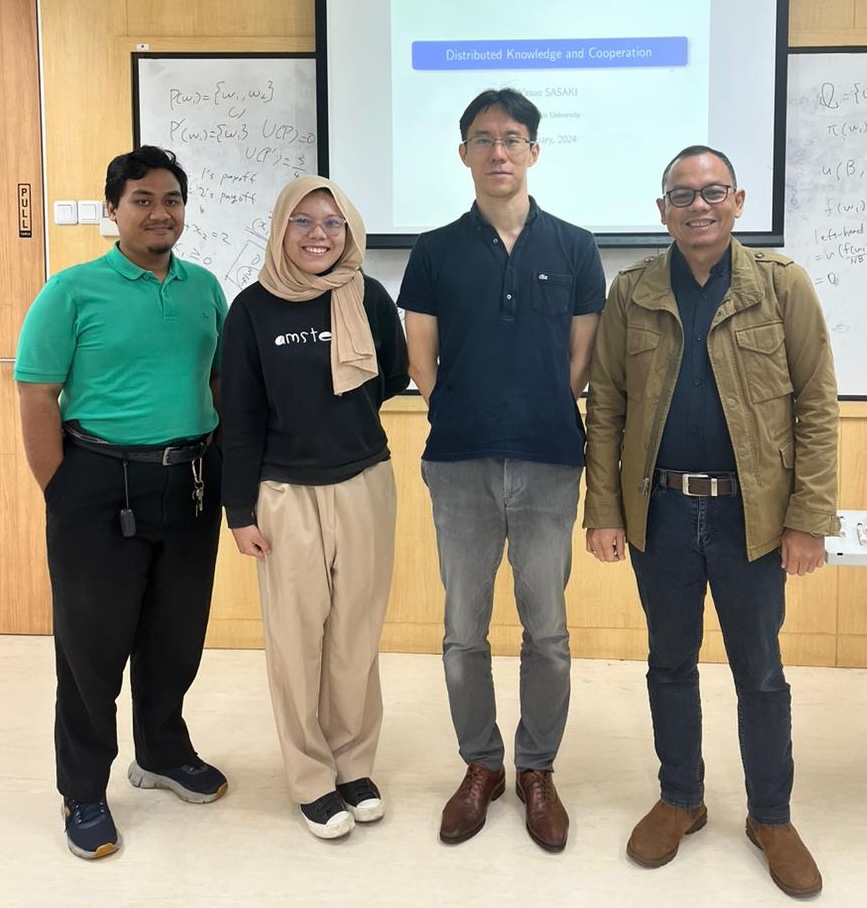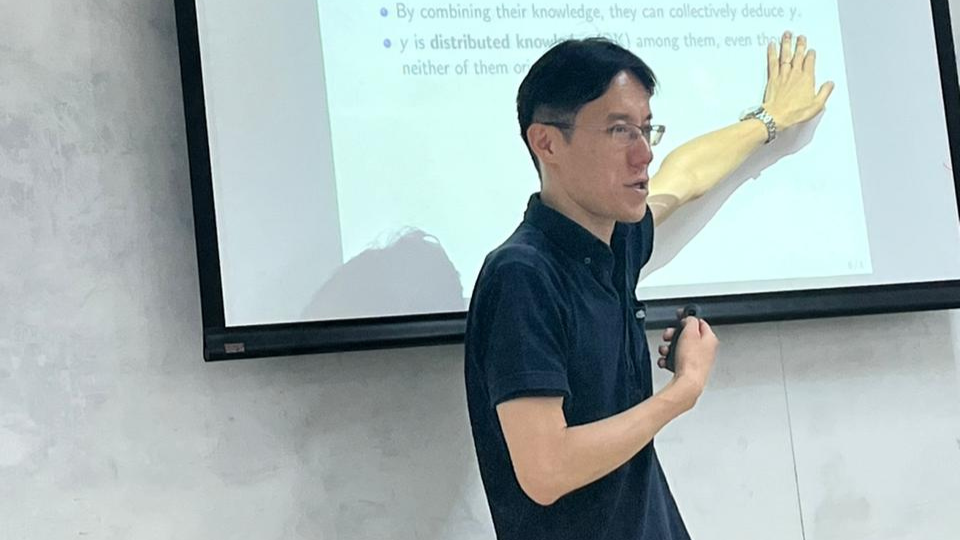“Two heads are better than one,” an adage Professor Yasuo Sasaki from Gakushuin University, Japan, holds, especially highlighted during his guest lecture on “Confrontation and Collaboration” at SBM ITB on Wednesday (28/2). Prof. Sasaki, a renowned expert in game theory, shared his insights on the pivotal role of knowledge distribution in decision-making processes involving multiple parties.
The concept of distributed knowledge plays a crucial role. Individual A possesses information X, and individual B holds information Y. The combination of these pieces of information generates new insights. According to Prof. Sasaki, this synergy can lead to innovative solutions and assist significantly in decision-making endeavors.
“When two or more people combine their knowledge, new knowledge is created,” said Yosuo.

For instance, an individual skilled in using Excel and another with expertise in accounting. Individually, they may struggle with comprehensive reporting. However, collaborating allows them to produce detailed financial reports, serving as valuable assets for informed decision-making.
This phenomenon is not rare; collaboration and knowledge sharing universally foster positive outcomes. Yet, a deeper examination reveals numerous lessons and strategies that can be applied before finalizing decisions.
Prof. Sasaki emphasizes that knowledge sharing unveils various scenarios, outlining potential benefits and risks for decision-makers. Therefore, engaging in scenario analysis is crucial for optimizing decisions, aiming for the highest gains with the least possible risks.
The importance of these lessons extends beyond theoretical understanding, emphasizing the need for practical application in knowledge distribution and collaboration. In today’s era, where cooperation and knowledge exchange are integral to every facet of decision-making, embracing these principles is essential for success.




